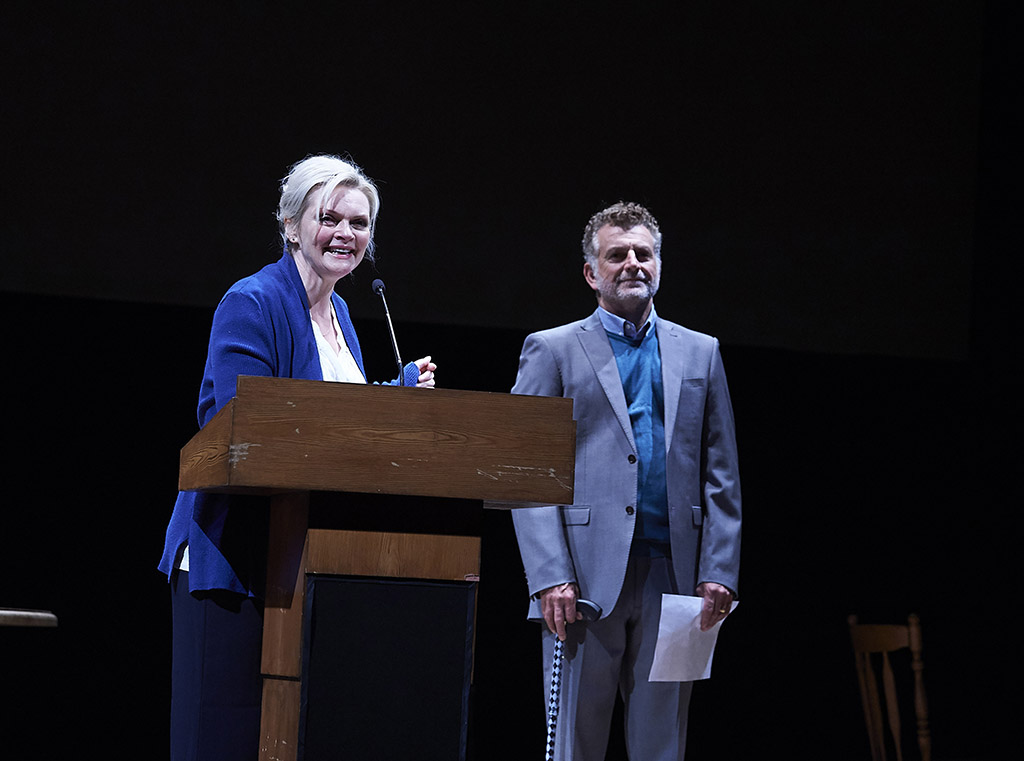The power of theatre is immense – provoking strong reactions from the audience, as powerful performances elicit emotions that we never expected to feel.
Still Alice, currently being performed at the Theatre Royal in Glasgow, takes the audience on a journey, as they feel the effects of early-onset Alzheimer’s on the play’s titular character.
Based on the best-selling novel by Lisa Genova and adapted for the stage by Christine Mary Dunford, Still Alice reflects events that many people all over the country will be going through and can relate to.
Sharon Small is the titular character, Harvard professor Alice Howland. We witness the onset of the condition over the space of two years, as she goes from forgetting simple things like taking her suitcase with her and repeatedly asking the same question, to the more serious effects.
Small excels in drawing sympathy from the audience, particularly when Alice, in her own home, forgets where the bathroom is, and is distraught when she can’t get there on time.
Joining her on stage is the excellent Eva Pope, who plays Alice’s inner voice, saying what she really feels, accompanying her through her dementia journey.
The cast is strong throughout – Martin Marquez as Alice’s husband John cuts a lonely figure at times, trying to continue with his professional life, whilst coping with the demands of his wife’s condition. His pain is clear to see, as he battles with his own children over the best way to proceed with his rapidly-declining wife.

Sharon Small and Martin Marquez in Still Alice (Photo: Geraint Lewis)
Mark Armstrong and Ruth Ollman, as the couple’s children Thomas and Lydia, represent the everyman, as they struggle to understand and come to terms with their mother’s illness, with Thomas in denial at first as he tries to raise his own family, as Lydia’s acting career takes its first faltering steps. The Christmas dinner scene delivers a punch to the guts, and later, Alice’s failure to recognise her own daughter is a moment that is truly shocking.
Alice’s loss of her character and life is genuinely moving, and there are a few moments of humour to break the tension.
As events continue and Alice’s mental health deteriorates, this is reflected in Jonathan Fensom’s set, which, from being packed at the start with the comforts of home, are gradually stripped away, piece by piece.
Where once there were a kitchen table, with sofa, fridge, oven and laptop, by the end, we are left with just two deckchairs, reflecting how all of Alice’s material possessions have disappeared from her life, as they no longer matter.
The sound design by Gregory Clark and lighting from Jason Taylor effectively capture the passing of time, aided by a big screen in the background, and at no point are over the top, or even emotional. It’s matter of fact – events happen, and they can’t be stopped. Subtle and clever.
David Grinley’s direction is virtually flawless. He has found the emotion in the text, and brings it to life with a superb cast, but at no point is the emotion of the situation forced home, as could easily have been allowed to happen.
Alice’s speech to a conference is incredible powerful, with a controlled performance from Small, which could easily have crashed into an emotional outburst, or wallowed in self-pity. Every word has been carefully considered, and is delivered to perfection.
It’s a reflection of real life. Still Alice is powerful, upsetting, uncompromising and unmissable.
Still Alice at the Theatre Royal in Glasgow until Saturday, with performances at 7.30pm each night, with Thursday and Saturday matinees at 2.30pm. The Thursday performance at 2.30pm is dementia friendly.
Click HERE for tickets.
TAGS

